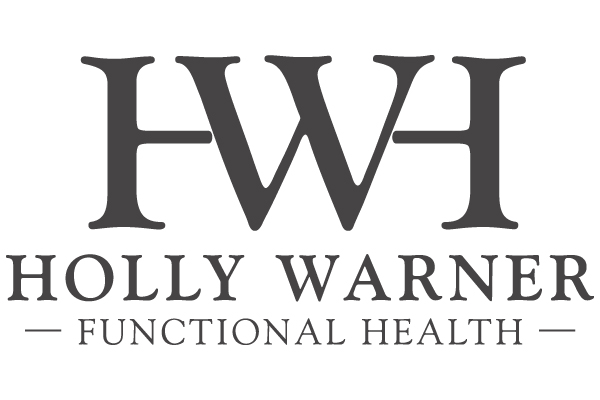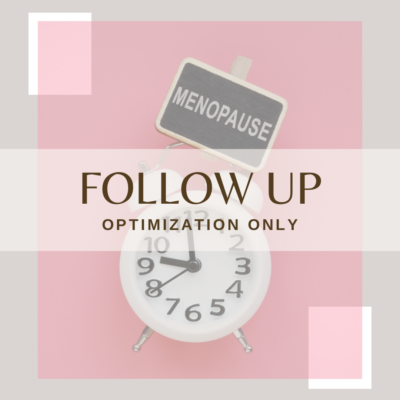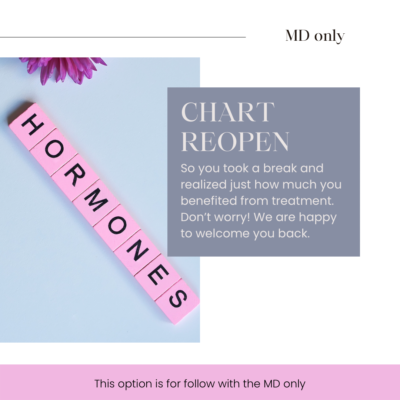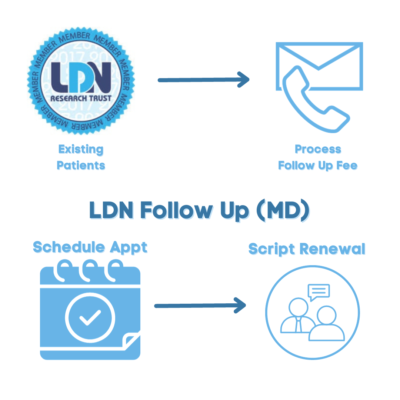Why Are Hormones So Important For Disease Prevention
From heart disease and dementia to fractures and inflammation, declining hormones during perimenopause and menopause drive age-related disease. This blog breaks down the role of estradiol, progesterone, and testosterone—plus the stats every woman needs to know.
Most women are told that menopause is a natural part of aging. But what they’re not told is this: the decline of estradiol, progesterone, and testosterone during perimenopause and menopause is directly tied to the rise in every major chronic disease in women over 50.
This isn’t just about hot flashes or mood swings. This is about dementia, heart disease, fractures, metabolic decline, and death.
Here’s what you were never told—hormone by hormone, stat by stat.
Estradiol (Estrogen): The Foundational Hormone
Estradiol is the dominant estrogen before menopause and has system-wide effects. Once it declines, the risk of disease rises rapidly—and predictably
Cardiovascular Disease:
- Heart disease becomes the #1 cause of death in postmenopausal women.
- Before menopause, women have a 30–50% lower risk of CVD than men. After menopause, they lose this protection.
- LDL cholesterol increases by 10–15%, HDL decreases, and arteries stiffen.
- The ELITE trial showed that oral estradiol started within 6 years of menopause slows arterial plaque progression.
Fractures and Bone Loss:
- Up to 20% of bone mass is lost within 5–7 years post-menopause.
- 1 in 2 women over 50 will have an osteoporosis-related fracture.
- 20–30% die within 1 year of a hip fracture, mostly from complications. That number increases to 70% without surgical intervention.
- Estradiol regulates bone remodeling—loss accelerates osteoporosis.
Dementia and Cognitive Decline:
- Women account for two-thirds of Alzheimer’s cases.
- Estradiol loss impairs glucose metabolism in the brain, leading to early neurodegeneration.
- Surgical menopause before 45 increases dementia risk by 70–80% without hormone replacement.
- Women starting estradiol therapy within 5 years of menopause see a 30–60% reduction in dementia risk.
Other Systemic Effects:
- Vaginal pH increases → loss of Lactobacillus, recurrent UTIs, dryness.
- Gut barrier weakens → increased inflammation, autoimmune flares.
- Skin thins by 1–2% per year, collagen declines rapidly.
- Sleep fragmentation, metabolic dysfunction, eye dryness, and increased macular degeneration and glaucoma risk.
Progesterone: The Nervous System Regulator
Progesterone is the first hormone to noticeably decline in perimenopause and is essential for neuroprotection, endometrial safety, and sleep.
Endometrial Cancer:
- Without adequate progesterone, unopposed estrogen increases risk of endometrial hyperplasia and cancer.
- 200 mg of micronized progesterone is the minimum oral dose shown to protect the endometrium adequately in women on estradiol. That doesn’t mean we stop there, it means that’s a goal post.
Sleep & Neurological Health:
- Progesterone interacts with GABA receptors, producing a calming, sedating effect.
- Oral micronized progesterone (Prometrium or compounded) improves deep sleep and reduces night-time waking.
- Vaginal progesterone is less sedating and may not consistently reach endometrial-protective levels unless used in high doses. Please compound this one, your delicate vaginal pH doesn’t like the fillers found in Prometrium…
Mood & Neuroprotection:
- Progesterone supports myelin formation and protects against anxiety and irritability in many women.
- Deficiency is associated with PMS-like symptoms, anxiety, and poor sleep in perimenopause.
Testosterone: The Silent Powerhouse
Often overlooked in women, testosterone is essential for libido, muscle mass, bone density, mood, and metabolic health.
Muscle Mass & Bone Density:
- Testosterone preserves lean muscle mass and supports bone strength, particularly in cortical bone.
- Combined with estradiol, testosterone enhances bone mineral density more than estrogen alone. You can see on NTX scores that the combination of estradiol (oral) and testosterone combined actually regrow bone!
Libido and Sexual Function:
- Testosterone is the primary driver of desire, arousal, and orgasmic function in women.
- Deficiency leads to low libido, fatigue, and reduced sexual response.
- Topical testosterone therapy (properly dosed) restores sexual function in clinically deficient women without masculinizing effects.
Mood & Energy:
- Testosterone contributes to motivation, mood stability, and resilience.
- Low levels are associated with fatigue, brain fog, and low drive (not just sexual, but mental and physical).
Metabolic Health:
- Supports insulin sensitivity and helps prevent visceral fat accumulation. That visceral fat is an indicator of CVD and a contributing factor to insulin resistance.
- Loss of testosterone contributes to central obesity, prediabetes, and insulin resistance in aging women.
Important Clinical Note: In women, exogenous testosterone does not convert to estradiol—a common misconception carried over from male data. We see this misconception a LOT in the Functional Medicine community, it’s a lack of understanding when it comes to interpreting the data (baseline studies vs interventional trials show this)
Hormone Loss Drives Disease
When I see women boasting about not using hormone therapy I cringe.The loss of estradiol, progesterone, and testosterone is not benign. It’s a predictable biological shift that increases risk of death, disability, and dysfunction—in women who otherwise had no obvious health concerns.
The Stats in Summary:
- Heart disease risk spikes within 10 years of menopause.
- Up to 30% of women die within a year of a hip fracture.
- Alzheimer’s risk doubles every 5 years after age 65, and estrogen decline is central to this.
- Estradiol + progesterone therapy offers protection. Testosterone completes the picture.
Fear Around Hormone Therapy Is Outdated
The misinformation from older studies like the WHI has done irreversible damage—but we know better now (some of us knew a long time ago). Bioidentical hormone therapy, started early in the menopause transition, is safe, effective, and protective.
We’re not talking about “anti-aging” vanity. We’re talking about extending healthspan, preventing disability, and improving quality of life.
Want to know if hormone therapy is right for you? Contact us to schedule a consultation with our hormone optimization team.





